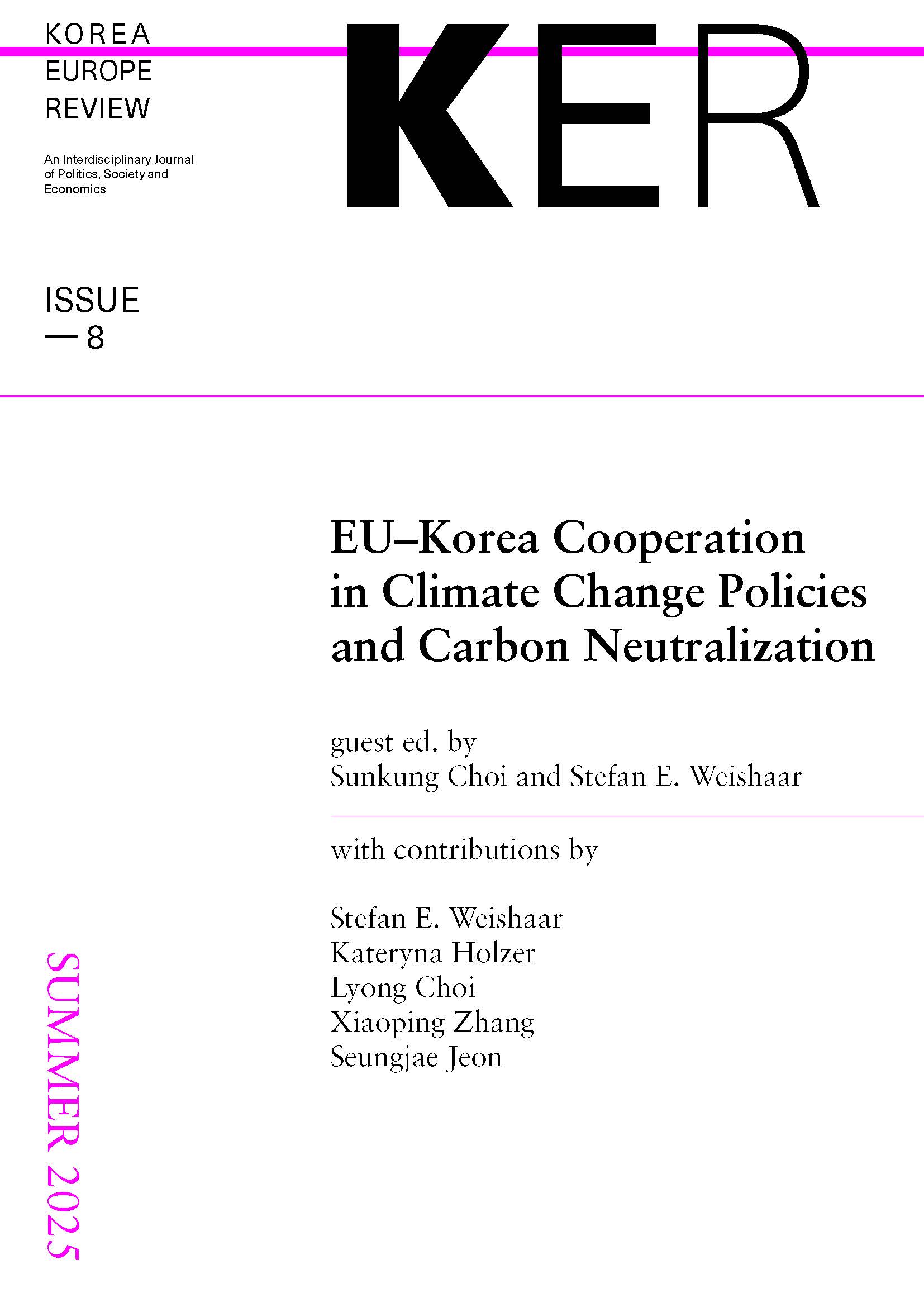Regulatory Cooperation under the Climate Club
Opportunities, Challenges and Stakes for South Korea
DOI:
https://doi.org/10.48770/ker.2025.no8.60Keywords:
climate club, decarbonization, regulatory cooperation, EU, South KoreaAbstract
This article argues that regulatory cooperation is emerging as a new frontier in climate governance, becoming a useful tool for aligning approaches to the implementation of carbon-related measures. It examines the newly established Climate Club as a novel form of minilateral cooperative arrangement, focusing on its potential to serve as a central platform for regulatory cooperation on sectoral emissions accounting methodologies and monitoring, reporting, and verification (MRV) systems used in implementing trade-related carbon restrictions. However, unlike a typical club from Buchanan’s club theory, the Climate Club extends an invitation to all countries committed to ambitious climate action, encouraging them to help shape its evolving concept and structure. How this will function in
practice remains unclear, as preventing free-riding in the provision of public goods (such as a safe climate) typically requires a degree of exclusivity. In this context, the article addresses the following questions: Can an open climate club with low entry barriers and minimal member commitments still be effective for regulatory cooperation? How might such cooperation within the Climate Club evolve, and what challenges could it face? What could countries such as South Korea gain from participating in the club, and how might they contribute to its success?

Downloads
Published
How to Cite
Issue
Section
License
Copyright (c) 2025 Kateryna Holzer

This work is licensed under a Creative Commons Attribution 4.0 International License.


